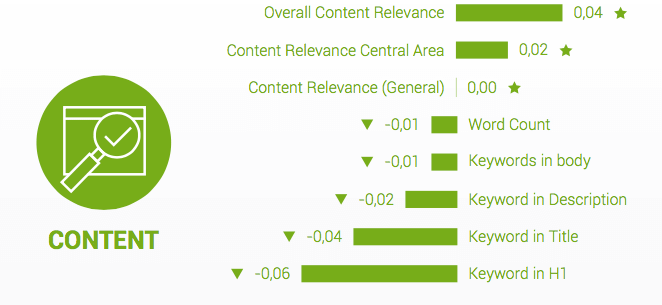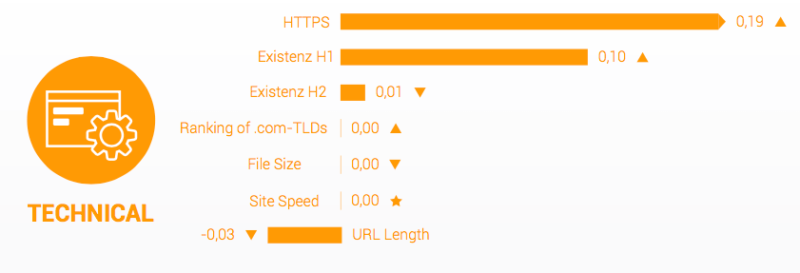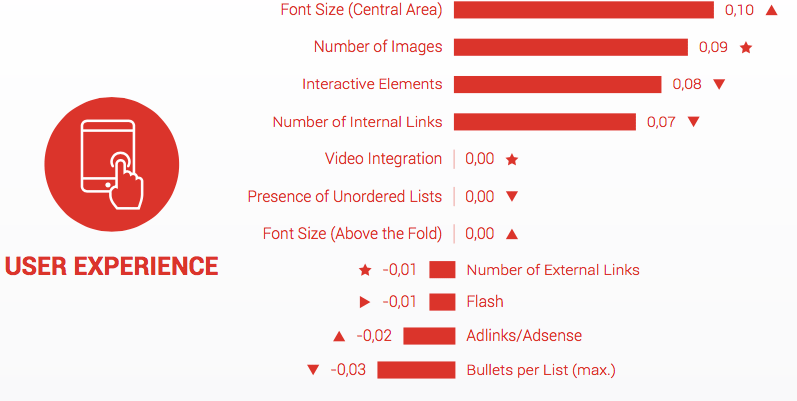Searchmetrics Google ranking factors study says content gaining while links losing in importance
Google search ranking factors study is now out, it measured the top 20 search results for 10,000 keywords on Google.com.
A new Google search rankings factors study released by Searchmetrics today shares that while content relevance is gaining in importance with Google, backlinks are a declining ranking signal. The full study can be downloaded over here, but here are the key takeaways from the study:
- The URLs with the highest content relevance are those on positions 3 to 6.
- Desktop content is around a third longer than mobile content.
- In 2016, just 53 percent of the top 20 URLs included the keyword in their title.
- The Time on Site for the top 10 URLs is 3 minutes and 10 seconds.
- The average Bounce Rate for URLs on the first page of search results is 46 percent.
- The pages occupying positions 1 through 3 have an average Click-Through Rate of 36 percent.
- Almost half of webpages in the top 10 now use of HTTPS encryption.
- Eighty-six percent of the top 10 domains now use the .com TLD.
- Pages ranking for mobile are around a third smaller in terms of file size than their desktop equivalents.
- Mobile pages load around a second more quickly than desktop.
- The top 100 most visible domains all have mobile-friendly solutions for smartphone users. Outside the top 100, the rate is around 78 percent.
- 2016 saw a marked increase in the use of structured elements like lists and bullet points that create an improved user experience.
- The correlation between social signals and Google ranking has remained similar compared with previous years.
- Backlinks are now just one of many contributing factors. The correlation for backlinks remains high, but their importance is set to continue its decline.
Earlier this year, Stone Temple Consulting released a study saying that links remain incredibly important in Google’s ranking algorithm. Searchmetrics agrees but says that importance has dropped.
“Google revealed last year that it is turning to sophisticated AI and machine-learning techniques such as RankBrain to help it better understand intent behind the words searchers enter, and to make its results more relevant,” Marcus Tober says. “User signals such as how often certain results are clicked and how long people spend on a page help the search engine get a sense of how well searchers’ questions are answered. That allows it to continually refine and improve relevance.”
Here is the correlation report broken down by these factors; content, user signals, technical, user experience, social signals and backlinks. The arrow up means it has increased in value, arrow right is the same value, arrow down is down and * is a new feature they just started calculating.
The study is very comprehensive and goes into a ton of details; you can download it over here.
Related stories






